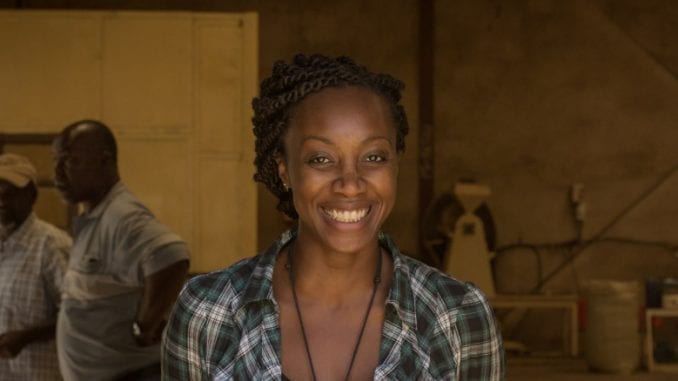
Vava Angwenyi saw a problem in the way coffee farmers were paid in Kenya—so she set out to change how the entire coffee supply chain looks and operates.
BY ASHLEY RODRIGUEZ
BARISTA MAGAZINE ONLINE
Cover photo courtesy of Vava Angwenyi
In Kenya, coffee farmers make less than $1 a day. Vava Angwenyi set out to change that. Vava is the founder and chief coffaholic at Vava Specialty Coffee, as well as cofounder and director at Gente Del Futuro. Vava Coffee is a social enterprise that exports, roasts, and consults on coffee value chains; their main aim is to contribute to better future prospects for coffee communities and the industry as a whole. The company ensures sustainable livelihoods for the people and communities in which it works.
Gente Del Futuro, formed in 2017, is an organization born out of a partnership between African Plantations Kilimanjaro, Vava Coffee Kenya, and Oro Molido – Antioquia Colombia, three private-sector players within the coffee sector. The group tackles two of the main problems we face as an industry: producer profitability and next generation involvement. Gente Del Futuro’s focus is to amplify the voices of youth by creating economic empowerment, choices, and sustainability for the coffee industry. The organization offers young people a unique and one-of-a-kind learning opportunity by fusing coffee cultures and knowledge from three different coffee-growing countries: Tanzania, Kenya, and Colombia.
In part one of this two-part interview, we learn about Vava’s background, how she got into coffee, and what it means to decolonize empowerment.
Ashley Rodriguez: How did you get involved in coffee?
Vava Angwenyi: I got into it out of sheer curiosity. It felt like a way I could transform my community. I had the privilege of having parents who believed in education, so much so that they sent me to Canada to get my A-levels and the rest of my higher-level education—my bachelor’s—and eventually finished my master’s in the Netherlands. My parents believed in the idea that with education, you could be anything and everything.
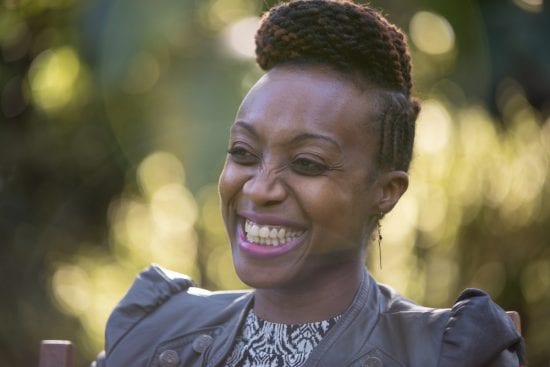
AR: What motivated you to start your own company?
VA: I grew up in a home where there were certain expectations—to get two or more degrees, maybe become a lawyer or an engineer. But my father believed that I should never be employed. He would always elude to the fact that employment is slavery and to never succumb to employment. So then I thought, “If I were to start my own company, what would it be?” But at that time, due to the fact that coffee is kept away from ordinary Africans and that coffee is such a “white” thing, we never drank coffee at home. My parents had a coffee machine they got as a wedding present, and that always fascinated me, but it was when I was a student in Canada that I started drinking coffee. I was hanging out at coffee bars, I would spend hours studying at a Starbucks on campus—I’m a mathematician by training—and it was then that I got interested in the socioeconomic imbalance we see within the coffee sector.
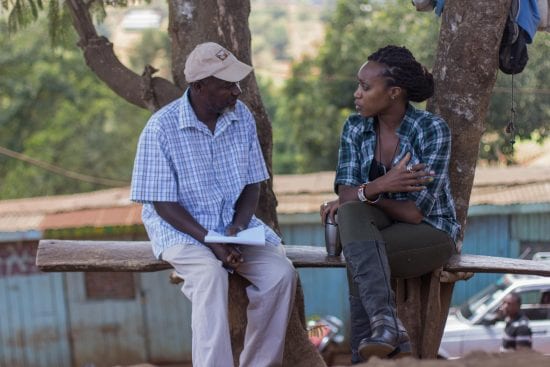
When I would come back home during my undergrad, I sort of made the decision that I would never work for anyone, and if my family pushed me, I would start my own financial consulting firm or become a financial actuary. I never wanted to be someone who worked with pensions or risk—that was boring. So I was like, “I’ll still work in the investment world.”
But then once I decided to go the coffee route, it took me a long time to come out and tell my family. At this point my father had passed away and it was just my mom, and she had these expectations that, with my degree, I could uplift the family. I come from a family of seven children, and traditionally what is expected is that, when you graduated, you would get a good job and start sending money back home to help my siblings with education and the rest of the family. It was thought very selfish of me to pick my passions over the rest of the family, and looking back it was a quite drastic decision because out of seven kids, I was the only outlier. My family doesn’t have a farm so they thought this idea was crazy.
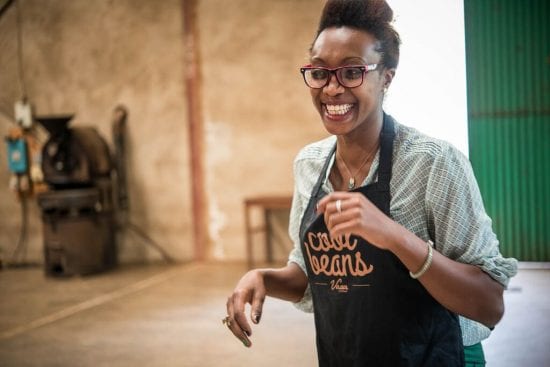
AR: What were the first steps to starting your company?
VA: I thought the best way to get into coffee at the time was to do my master’s thesis in coffee, so I wanted to write about how derivatives can be used to hedge risk for farmers. But when I started looking for data, no one was willing to give me data. I was at this point based in a small town in the Netherlands, and my thesis advisor needed something quick, so I picked a topic (derivatives within the oil and gas industry in the United States); after my graduation I made the decision to move back home and try to pursue the entrepreneurial journey.
And everyone thought this was crazy because when you leave Africa, you’re not supposed to come back. You’ve been given the chance to go to the land of opportunity, but I thought, “Africa is a land of opportunity! I need to use all this knowledge to uplift my community and to help people.”
I knew [at the time] that the policies that were in place for farmers in Kenya were wrong. Right now, the government is pushing for policy reform—at the time I thought I’d be a policy maker or have some role to play because I felt so strongly that this was what was calling me.
So eventually I thought, I’ll start my own company, and I want to start finding out what ails the coffee community in Kenya and what farmers need. I started small, with two students I recruited from a local university, and we started collecting data. The data I was looking for were how many women really owned their farms, how many were widowers, how many were white coffee farmers, coffee yields, pricing, quality, etc.
I also opened up a little coffee shop in town. I never wanted to have a coffee shop—I always wanted to tell the stories of farmers and be involved in the buying side and put money in farmers’ hands. But at the end of the day you need to create a product, so I decided to do the whole thing: work with farmers from the ground up, have them improve the quality of their coffee, find a buyer for that coffee locally and internationally, create a brand, roast coffee, package it, and sell it locally for whoever wants to buy it.
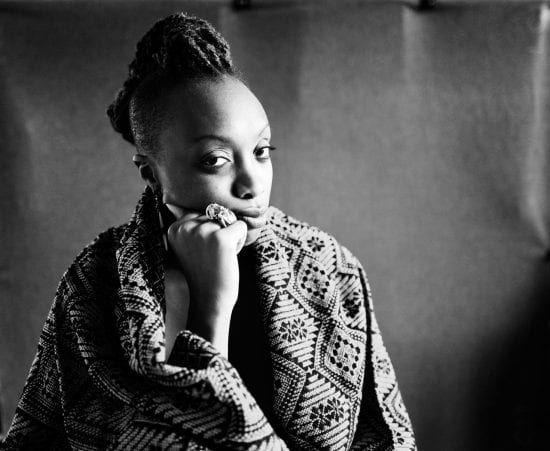
AR: Why did you take so much on?
VA: For people to take me seriously, I needed to create my own brand. I wasn’t going to ride on anybody else’s brand. There were times when people would say, “Look at Dormans! You don’t have even have as much capital!” And I’d say, “I’ll start small.” As long as I can have my own dent and transform lives, I’m happy with that.
AR: What have been some of the struggles you’ve faced owning your own business and trying to do something different?
VA: It’s definitely not been easy. There are times where we’ve lost money. Investors have pulled out. Fundraising is hard, and we’re still fundraising to date. But what keeps us going is that farmers trust us and know that we’re doing something different. Something coffee farmers ask is why I’m not white. They’re so used to seeing white people come to producing countries. This thought that has really affected the minds of coffee farmers—and this is why I talk about decolonizing empowerment—is the idea of the white savior. The rationale behind my company was to let Kenyan farmers save themselves. Even for me, as an entrepreneur, I’ve had to learn every day when I’m in a tough spot that I am the only person who can save myself from any situation. You can seek consultation from friends or whatever, but if you can’t make decisions for yourself, you’ll be forever stuck in that cycle of dependency.
You can read part two of our interview with Vava on the website tomorrow!

